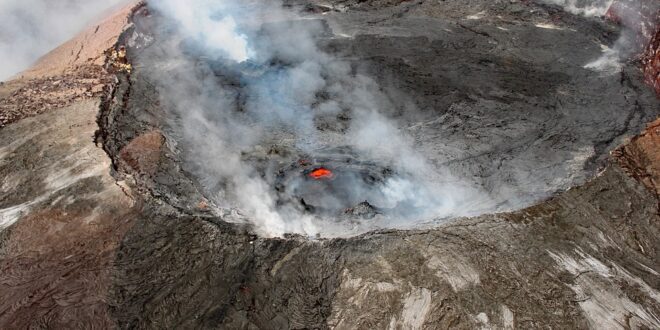A Journey Through Time: The History of Volcanoes
Have you ever wondered about the history of volcanoes? Since time immemorial, volcanoes have fascinated and impacted people across the world. In this journey through time, we will explore the history of volcanoes from the beginning of the earth to the present day.
The Birth of Volcanoes
Volcanoes are a natural phenomenon that came to exist when the earth was formed over four billion years ago. Volcanic activity began when the hot and liquefied materials of the earth’s mantle began rising to the surface.
As the materials traveled upward, they interacted with colder temperatures, causing them to cool and solidify. This created the various volcanic structures we are familiar with today, such as mountain ranges and calderas.
The Impact on Human Civilization
Over the course of history, volcanoes have had a significant impact on human civilization. Some of the most important and mysterious ancient cities, such as the cities of Pompeii and Herculaneum, were destroyed by natural disasters as a result of volcanic activity.
Volcanoes have been considered both sacred and fearsome by different cultures across the globe. In some communities, deities associated with the eruption are revered and responsible for all life on earth. At the same time, volcanoes have been known historically to cause significant harm and devastation to human lives and livelihoods.
Volcanic Impact From Scientific Perspective
From a scientific perspective, volcanoes are not only marvels of nature but important sources of scientific research. Aspects such as and growth rate, composition analysis, activity, and interaction are identified for extensive research by scientists. Scientists continue to study and learn about volcanoes through geological site visits, aerial views, and scientific laboratory experiments.
One of the greatest challenges that volcanoes pose to human science and scientific research is their unpredictable nature of the eruption. The potential changes that arise during eruption provide some of the most significant mysteries that scientists have encountered.
Conclusion
In sum, the history of volcanoes is ancient and rich in complexity. Volcanoes are paradoxes that humans must grapple with, with each discovery celebrated with joy and mourned when an eruption brings destruction. Despite their chaotic nature, it is undeniable that volcanoes are essential parts of shaping the environment and impacting human civilization.
 Mind Uncharted Explore. Discover. Learn.
Mind Uncharted Explore. Discover. Learn.




